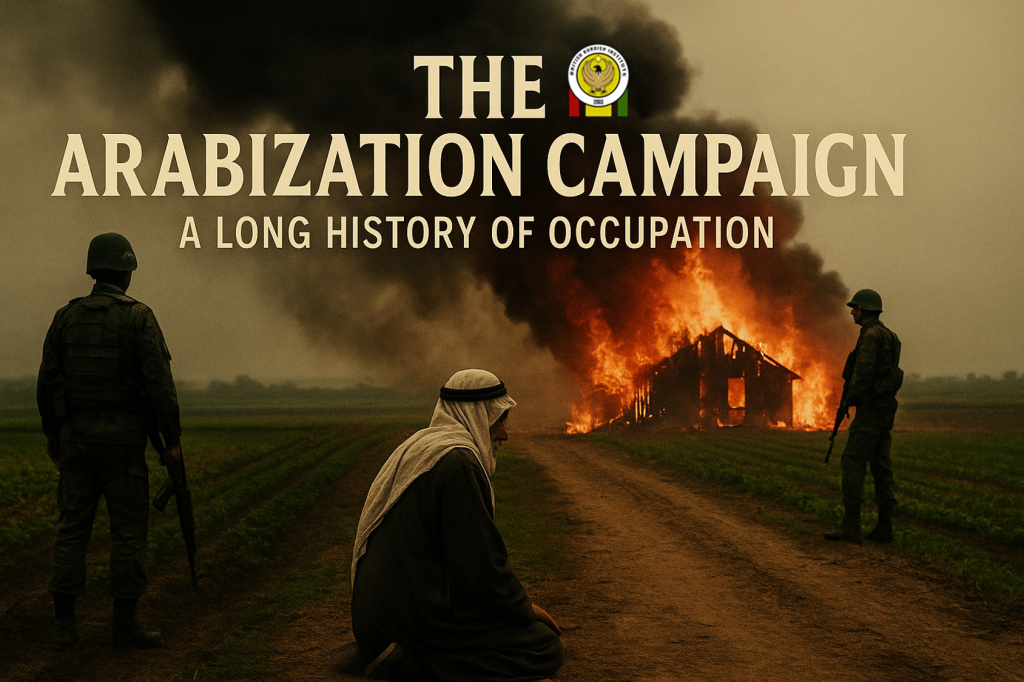The Arabization Campaign: A Long History of Occupation
The Arabization of peoples and nations around the Arabian Peninsula passed through several stages, each with its own character. Yet one theme remained constant: the seizure of agricultural lands from non-Arab communities. From the early Islamic conquests to Saddam Hussein’s Ba’athist regime, Arabization always meant dispossession of indigenous farmers and forced settlement by outsiders.
Land Seizures Across the Region
Across a vast geography—from Gokhlan Penjwen to Mauritania—Arab rulers imposed laws to confiscate non-Arab lands. Instead of organizing agriculture, they drafted legal frameworks to justify occupation.
- Christian properties from Basra to Nineveh were seized.
- Kurdish Faylis in Baghdad lost houses, shops, and markets.
- Millions of acres belonging to Kurdish and Turkmen farmers in Mandali, Khurmatu, Kirkuk, and Makhmur were handed to imported Arab settlers.
These acts were embedded into Ba’athist law so deeply that even after Saddam’s fall, the legacy remained unresolved.
Silence in Baghdad’s Political Class
Iraqi political elites—both Sunni and Shia—are well aware of the Arabization stages. They know when and how Arabs were settled across Kurdish lands, from Mandali to Sinjar. Yet, despite this knowledge, few acknowledge the truth publicly.
Since 2003, Kurds have struggled with Baghdad to restore stolen farmland through constitutional means. However, Ba’athist laws were deliberately designed to outlive Saddam, ensuring that Arab settlers remained protected long after the regime’s collapse.
Post-Saddam Iraq: Continuation of Ba’athist Policies
Unlike Germany after Hitler, which outlawed Nazi ideology, Iraq never fully purged Ba’athist practices. Laws issued under Saddam that legalized the theft of Kurdish, Turkmen, and Christian property still shape state policies today.
Even after the Iraqi parliament annulled Ba’athist land decrees, settlers—backed by militias and military units—continue to occupy Kurdish and Turkmen lands. Farmers in Palkana, Sargaran, Daquq, and Duzkhurmatu still face harassment, dispossession, and violence.
Kurdish Leaders in Power: A Bitter Paradox
A troubling question arises: why do Kurdish officials in Baghdad remain silent? Kurds hold high offices—the presidency, the deputy prime ministership, and even the ministry of justice. Yet Kurdish and Turkmen farmers are left defenseless, while judges and officers side with imported settlers.
According to the Iraqi constitution, Arabization should be dismantled and rights returned. But the inaction of Kurdish officials raises doubts—are they avoiding confrontation, or is there a hidden agenda behind this silence?
Saddam’s Direct Orders: Evidence from Ba’athist Documents
A chilling Ba’athist document sheds light on Saddam Hussein’s personal involvement in Arabization. The letter, written by Izzat Duri to Taha Yasin Ramazan and other officials, includes Saddam’s handwritten notes.
The orders specified that Arab tribes brought to Duzkhurmatu should each receive:
- 50 dunams of irrigated land
- 120 dunams of dry land
- 150 acres outside army zones
In total, 320 acres per tribe.
Even more shocking, Saddam prohibited displaced Kurdish farmers from working as laborers on their own former lands. The policy aimed not only to confiscate property but to erase Kurdish economic presence altogether.
Forced Identity Change: Erasing Kurdish Roots
The documents also reveal that some Kurdish families, villages, and tribes were pressured into registering as Arabs. Saddam demanded that such “converted” Kurds not be allowed to remain together, effectively scattering them to weaken communal identity.
This strategy shows that Arabization was not random—it was a calculated, long-term campaign to break Kurdish society and secure Arab dominance.
Conclusion: Arabization Beyond Saddam’s Fall
The Ba’athist project of degradation and land seizure was not a temporary policy. It was a strategic goal designed to last beyond Saddam Hussein’s rule. Today, the persistence of Arabization practices, combined with Kurdish silence in Baghdad, proves that the mentality of occupation remains alive.
For the Kurds, the question is no longer only about history—it is about survival, justice, and whether the legacy of Ba’athist Arabization will ever truly end.









